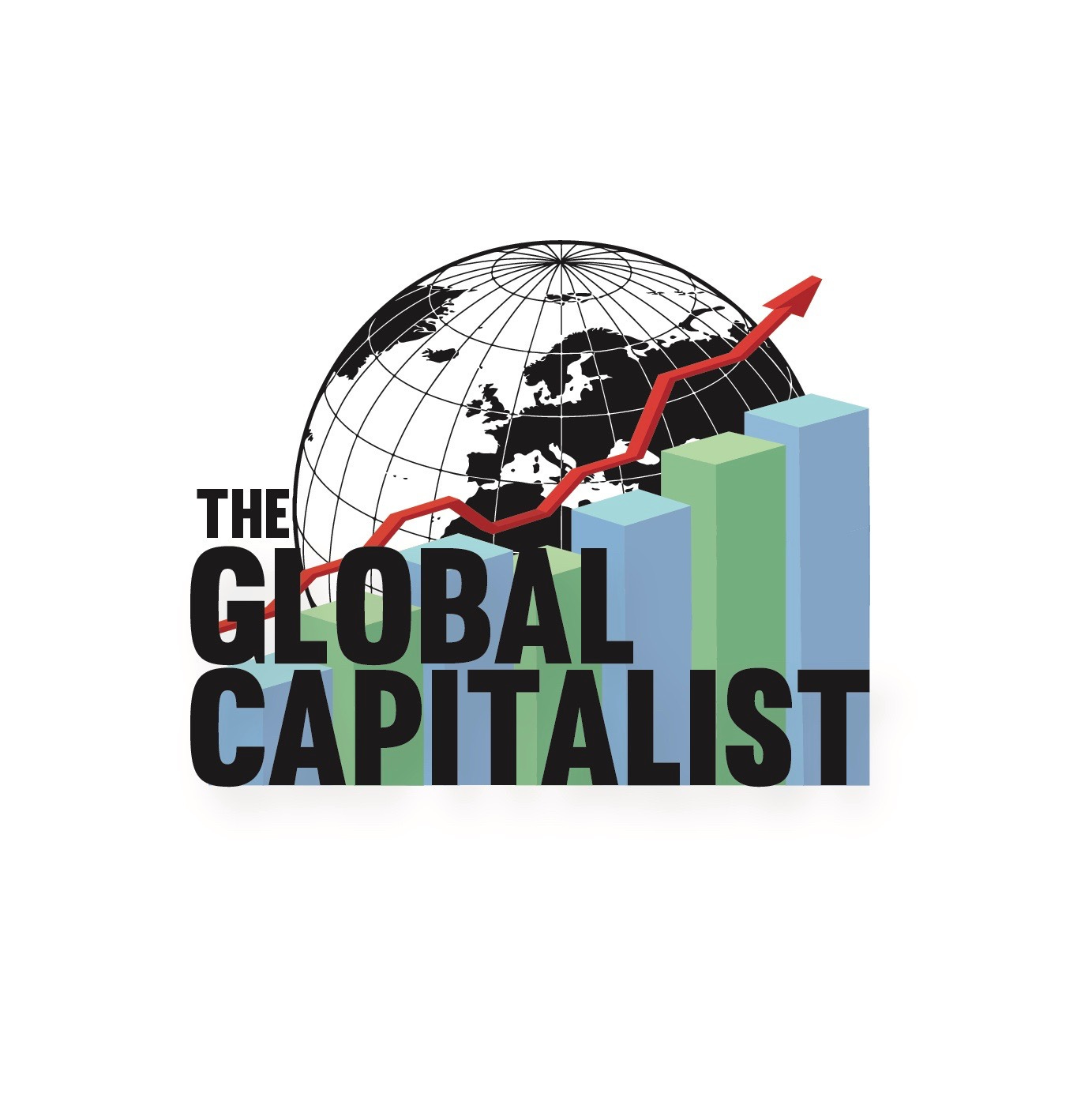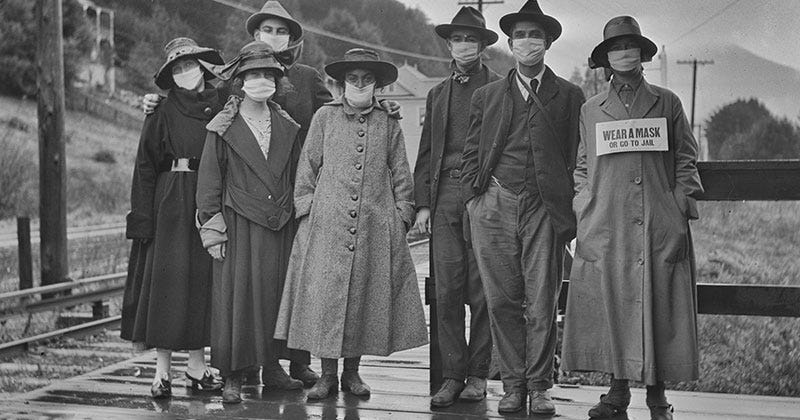Ninth Times the Charm
This week, I wanted to dive into Argentina's history with insolvency while giving an update on the global coronavirus pandemic.
Welcome to the Global Capitalist - A newsletter on emerging and frontier markets viewed through the lens of history and culture.

Welcome back, folks. This week, we’re going to talk about coronavirus and Argentina. Thank you again for all of your continued support! I kindly ask that you share this newsletter with a friend or family member to help me grow my audience.
Also, I want to say a special thank you to my friend and reader Dave J. from New Hampshire for his help in editing my work! I certainly am very prone to the grammatical error here and there.
Housekeeping:
FREE HAT: Details can be found here.
If you’d like to support me financially, you can BUY a hat from me at Etsy.com.
Old posts can be found here.
Feedback, questions, or insights here.
Follow us on Twitter: @TGC_Research
Follow us on Instagram: @TGC_Research
Follow Tom on Twitter: @TominalYield
**If you subscribe through Gmail, please move us from your ‘Promotions’ tab into your ‘Primary’ inbox so you never miss a letter!**
**None of this should be perceived as investment advice. Speak with your advisor before investing in emerging markets.**
Last Week Briefing:
China announced a 3.2% bump in Q2 GDP, demonstrating the strength of China’s state-directed economic recovery. China’s equity market was unimpressed, however, as the Shanghai Composite fell over 6% last week.
Google has invested $4.5B for a 7.7% stake in Jio Platforms, the media component of Reliance Technologies. Reliance Technologies is the largest telecom firm in India.
The U.K. announced that they will ban 5G equipment from Huawei in their country, citing ethics and security concerns in working with the CCP.
South Africa has reinstated their ban on alcohol following a resurgence in the coronavirus. Nearly 300,000 cases have been reported in the country.
Coronavirus Updates & Briefing


Like Nathan here, I wish I had better news to tell you.
The coronavirus isn’t going away. At least not for the foreseeable future.
As I write this, the world tallied another 200,000 new coronavirus cases and over 4,000 new deaths. Ben Hunt, the inspiration for my financial blogging career, states that coronavirus is endemic, meaning that the virus is something we’re no longer battling with, but living with on a daily basis. This effectively cements the virus alongside ailments such as heart disease, the Flu, and the common cold, which coincidentally, is another type of coronavirus.
The U.S. has been the “punching-bag” of developed nations, as they’ve recorded nearly 4 million cases as of July 19th. However, it would be unfair to state that coronavirus has been extinguished in other countries, or that we know anything about the virus. As a matter of fact, many of the countries who were lauded for their initial success in curtailing the virus are now suffering from a sinister “second wave”. Countries such as Japan, Australia, and Hong Kong have all seen new, daily cases spike in recent weeks. Other developed stalwarts such as Germany, France, and South Korea have yet to break the upward trend in the number of total cases.
Again — this isn’t an excuse of the collective failure of American politicians in preparing for the virus. Rather, I’m only highlighting this to rationalize expectations and inform you— dear reader — that this phenomenon will not be limited to the year 2020. After all, the Spanish Flu of 1918 wouldn’t end until the summer of 1919.

On that note… Let’s talk about American coronavirus.
I read an opinion somewhere which floated a rather pragmatic explanation of how and why the virus is shifting out of the northern states into the “Sun Belt” south. The theory claims that the Sun Belt states are more affected because they’re staying indoors (I’m wildly thankful for A/C in Texas) while the northern states are enjoying their summers outdoors, and vice versa. I’m skeptical of this explanation because it almost seems too simple to the point that it’s stupid. However, IF this is true, then I’m very concerned about the prospect of a resurgence in the fall. Malls, restaurants, schools, and offices will likely suffer from some sort of displacement, assuming a second wave occurs.
Again — It might not occur! Unfortunately, we don’t have enough data or information at this moment to know whether the above theory is true or not. Even the new case counts we see are likely skewed given the fact that the number of new cases is married to the volume of tests administered. There could realistically be thousands, even millions of cases going unreported. After all, the CDC and WHO haven’t been so successful in their coronavirus forecasts.
One Flu Over the Cuckoo’s Nest: Where was the first Spanish Flu case reported? Answer at the bottom.
A Series of Unfortunate Events
Oil bubbles. Military dictatorships. A coup d'état here and there.
What could go wrong?
Argentina is one of many countries which knows that song and dance far too well. Prior to WWI, Argentina was the 10th richest country in the world per capita, stemming from its robust export volume and agriculture industry. Argentina, however, particularly struggled to rebound in the back half of the 20th century following a handful of military episodes and is still paying for its mistakes today.
In previous editions, I’ve shared articles highlighting Argentina’s debt woes. The country has defaulted on its debt nine times in the past 200 years and is at risk for its tenth default if it can’t reach a compromise on a debt restructuring deal with the IMF before the August 4th deadline. For context, Argentina defaults on its debt 4.5x as often as they win FIFA World Cups.
I’m sure my statistics are off when factoring in time, but this is my newsletter so I get to make the jokes here.
Default #1: Argentina Goes Independent (1816-1825)
In the early 19th century, Spain’s colonial prowess crumbled amidst Napoleon’s European conquest. The weakened Spaniards were chased out of their South American colonies and replaced by military dictators or caudillos which created opposing factions within the continent. The early 19th century would ultimately be characterized by conflict as the newly-independent nations fought one another for their right to land.
The first default came in 1827, eleven years following the country’s independence from Spain. The Argentinian government took out loans underwritten by the Bank of England to finance the conflicts and the pursuit of independence. In 1825, the Bank of England hiked interest rates, choking Argentinian funding and forcing the country into their first default.
Default #2: Argentina Struggles with Independence (1890)
Towards the turn of the century, Buenos Aires emerged as of the largest, richest cities in South America, earning the monicker, the “Paris of South America”. To accommodate the massive influx of wealthy Europeans and businesspeople, Argentinians, once again, borrowed from the Bank of England to finance their massive infrastructure overhaul. Railroads, machinery, and factories erected from the cheap credit issued by the British. Meanwhile, commodity prices skyrocketed, provoking a speculative bubble in Argentina’s gold mines. Opportunistic immigrants flocked to southern Argentina to bask in the newly-mined gold wealth. This era would be known today as the Tierra del Fuego gold rush, comparable to the 1849 California Gold Rush.
When the commodity craze cooled off, reality sank in. Gold rush cities were abandoned and the Argentinian government was forced to default yet again.
Gold Rush: Argentina and California saw two of the three largest gold booms in modern history, where was the third? When did it start? Answer at bottom.
Default #3-#4: Peron-onomics (1950-1959)
1946 marked the end of World War II and the arrival of Juan Peron, the prominent military dictator who gained popularity from his “Third Position” platform. The Third Position hoped to capture the benefits of the capitalist West (U.S. & U.K.) and the communism of the Soviet east. Peron — formerly the secretary of labor — didn’t seem so fond of the capitalist ideals, as he nationalized Argentina’s industries, reinforced labor unions, and implemented a generous welfare program.
Argentina spent a lot on their working class, and they could afford to! Buenos Aires at the time was a burgeoning trade hub, as agribusiness and industrial exports endowed the country with vast sums of wealth. Unfortunately, however, Argentina’s economic prosperity would quickly evaporate following the Bretton Woods Agreement. The implementation of Bretton Woods instigated mayhem in the foreign exchange markets. Exports dried up as demand for Argentinian exports vanished and inflation struck the economy. Peron frantically tried to maintain his grasp, but would be ousted and exiled in a military coup d’etat in 1956. His citizens simply could not ignore his increasingly inflating sphere of power coupled with the deteriorating economic condition of the nation.
Amidst the turmoil, Argentina missed an interest payment, thus defaulting on their debt. The new military junta would ultimately broker a restructuring agreement with the Club de Paris (a syndicate of creditor nations) in 1956.
Default #5-#6: The Dirty War (1980-89)
Argentina’s Dirty War, considered of the darkest periods in modern American history, was the tailwind behind the fifth Argentinian debt default. For those unfamiliar, the Dirty War was a period of time in the early 1980’s in which a U.S.-backed military dictatorship violently turned on their citizens, killing thousands of people.
Following yet another coup d’etat of then-president Isabel Peron, the widowed spouse of Juan Peron, the Proceso, or Process of National Reorganization would assume power. This group, virtually a state-led terrorist group, would murder, silence, and suppress dissenting, left-wing ideologues and their allies. It’s estimated that over 30,000 people “disappeared” following the events of the Dirty War. To finance this operation, the Proceso borrowed over $30B from the U.S. and U.K..
If we rewind to the decade prior, the Argentinian economy was booming. In fact, almost all of the industrial economies of South America boomed as the price of oil more than tripled from 1970-79 and cheap credit fueled massive infrastructure projects. From 1970 to 1982, American commercial banks lent out nearly $300 billion to Latin American countries. Meanwhile, the U.S. Dollar, and contingently the entire world, faced a devastating inflation crisis. U.S. Federal Reserve Chairman Paul Volcker made the contentious decision to hike interest rates up to 20%, sinking the price of commodities and dislocating the foreign exchange market. The high price of oil, amongst other commodities generated much of the optimism behind these economies. Therefore, the capitulating prices of oil coupled with a depreciating peso squashed Argentinian confidence and made servicing dollar-denominated debt that much harder.

Oil Prices -- 1940-2020
Default #7-8: Paul Singer Gets Paid (1998-2014)
In 2001, the Argentinian economy was hobbling amidst the worst depression in its history. Argentinians demonstrated their exhaustion with the failed economic trajectory of their economy, taking to the streets in protest. At one point, the nation saw five different presidents in a two week period as turmoil only compounded upon itself. The nation was forced to default on $95 billion in debt. Restructuring deals would eventually be brokered in 2005 and 2010, where 93% of investors received 30% of the bonds’ face value. However, some high-profile investors, including Paul Singer, held out for their full compensation.
For those unfamiliar, Paul Singer is the founder of Elliot Management Corp, an activist hedge fund known for their hands-on engagement with their investments. In this case, Paul Singer’s fund, amongst other distressed-credit, or “vulture” funds, held defaulted debt securities issued by the Argentinian government. Elliot Management did anything they could to generate returns including taking hostage of an Argentinian navy ship in Ghana.
Paul Singer’s & Elliot Management’s issues with Argentina spilled into the global court system, restricting the country from accessing the international debt markets. A U.S. court demanded that before Argentina service new debt payments, they must color up with their debt-holders from the beginning of the century. While they initially objected, the demotion from international ratings agencies such as Standard and Poor’s eroded the financial integrity of the nation.

Cartoon Depicting Singer as a “Vulture”
Distressed Relief: Elliott Management was recently in the news for their involvement in what popular, publicly-traded company? Answer at the bottom.
Default #9: At Least They Tried! (2015-2020)
In 2015, Mauricio Macri won the Argentinian presidential election, marking the first time in over a century in which a president, not from the Peronist or UCR party, was freely elected in Argentina. Macri’s campaign success can be attributed to his Macrinomics platform. Macri championed foreign direct investment (FDI), proposed austerity measures and economic liberalization with the goal of reigniting the Argentinian economy. FDI poured into the nation as Macri’s proposed reforms inspired confidence in the nation’s economic prospects. Macri was also instrumental in settling the dispute with Singer’s Elliot Management, allowing Argentina to regain access to the previously restricted international debt markets.
Macri’s reforms had good intentions, but he was unable to handle the austerity required to right the economy, while reinforcing Argentina’s public pension system. Macri borrowed tens of billions of U.S. dollars — not wanting to print new currency — in order to finance this agenda. Argentina saw annual inflation spike to over 20% in 2015 and over 40% in 2016 as a result of the Argentinian government’s borrowing spree. The International Monetary Fund (IMF) would ultimately rescue the nation with a $53 billion relief package, on condition that Macri finally execute his plans for austerity.
In 2018, the election of Alberto Fernandez, an ally of socialism, dampened investor confidence in the Argentinian economy, tanking the nation’s bond market. Almost immediately after Fernandez’s victory, the yield on a 1Y Argentinian bond rose to over 46%, indicating that Argentina would likely not be able to service its debt obligations. The nation was forced to default, for the ninth time, on $65 billion in debt. That is just a little more than the entire market capitalization of the Target Corporation.
Argentina is now rushing to restructure its debt obligations before the fast-approaching deadline of August 4th. Bond prices have rebounded amidst optimism that Fernandez can broker a new deal, although Argentina’s debt woes are certainly here to stay for the foreseeable future.

Last Week’s Trivia
So last week I didn’t get any responses. I will attribute that failure to:
1) I’m boring you to the point where you don’t finish the letter.
2) Those questions are too difficult, and why would you care to know that in the first place?
Nonetheless, we move on. I still would like to reward readers who have been keeping up with me since day one, so if anyone has any creative ideas, please let me know!
This Week’s Trivia
One Flu Over the Cuckoo’s Nest:
The Spanish Flu was first found in Kansas in 1918. The reason why it is called the Spanish Flu is because Spain was disproportionately affected the onslaught of the virus. Even King Alfonso XIII contracted the virus.
Gold Rush:
Australia was home to one of the largest gold booms in modern history. Starting in 1851, over 500,000 people from across the globe (including California!) migrated to Australia in pursuit of new wealth.
Distressed Relief:
Paul Singer & Elliott Management sent ripples through the tech world when he advocated for the removal of Jack Dorsey as Twitter CEO. Dorsey and his investors would ultimately come to a compromise in March as he was allowed to remain in his position as CEO.

